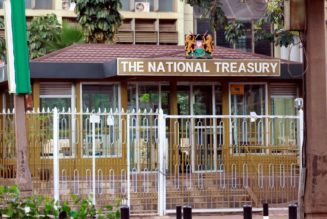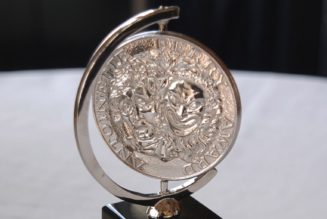Boss Talk
Rebecca Miano: How I plan to attract investors to Kenya
Friday November 03 2023

Rebecca Miano is the Cabinet Secretary, Ministry of Investments, Trade & Industry. ILLUSTRATION | JOSEPH BARASA | NMG
A year after being plucked from the private sector to head the East African Community Affairs ministry, Rebecca Miano finds herself in new territory tasked with repositioning Kenya’s trade and industry dockets for growth.
The Business Daily talked with the CS just before she flew out to Japan on the invitation of the G7 economies.
Did you know you were going to be a CS after the election?
I must confess it came as a surprise because I was settled and working in my second term at KenGen. However, I realised the corporate world had prepared me quite well in terms of qualifications, stakeholder management, governance and all the skills. The skill sets and tools required for the Cabinet were well curated in the corporate world and I feel that I fitted in quite well. The Cabinet or government is just a bigger corporation compared to where I was.
You are now at the Trade Ministry from EAC Affairs; how has that transition been?
EAC is a smaller facet of trade, arid and semi-arid lands are to spur development and investment while regional development equally is development based in the regional water basins. The docket I held before still had similar issues to the docket I am heading today but only to a different scale.
This ministry is catalytic to the Kenyan economy. Cognizant of that, I am here putting my best foot forward to ensure that Kenya enjoys good trade relations within and without.
What are your priorities in the new docket?
In terms of investments, my priorities are to sort out the investment journey so that when an investor out there thinks of investing in Kenya and lands in Nairobi, it’s clear to them, where do they go, who to talk with, the incentives and opportunities in the country in terms of sectors. We need a catalogue or menu of investments and make sure they are bankable to make it easier for investments. I also seek to standardise the policy, regulatory and legal regime so that the environment is clear and predictable for the investor. Locally, I would like us to partner well with the private sector and make them a good partner for the government.
You are taking over a manufacturing industry that is hurting from various issues, among them high costs and taxation. What will you do differently?
Manufacturing has been identified as a key economic pillar. A key strategy on repositioning the sector targets increasing global competitiveness, attracting anchor manufacturing investments in key value chains, increasing industrial spaces through incentivised zones, promoting green investments and improving the business environment and investment climate.
Advocating for specialised power tariffs and fast-tracking the approval and implementation of the National Taxation Policy will play a significant role in facilitating a predictable tax regime which is a catalyst for investments.
Over and above, our deliberate export promotion strategy focusing on increasing manufactured exports will over time address our foreign exchange constraints.
Kenya has lost the edge against regional peers, who are catching up with us in trade terms, the strength of their currencies against the Kenyan shilling is also a testament to their momentum.
Kenya remains the largest manufacturing hub in the region and is a pivotal member of our EAC market. We are also the only low-middle income country in the region with the rest classified as least developed countries and, therefore, tilts the balance in terms of market access globally.
Occasionally, non-tariff barriers subjected to Kenyan goods and stay of applications on the Common External Tariff by member States have disadvantaged Kenyan investments, especially in the manufacturing sector.
I intend to encourage Kenyan manufacturers and investors to focus on manufacturing of high-value-added products and take full advantage of our highly skilled and resilient human capital to compete favourably in the region and beyond.
There has been a lot of backlash and questions surrounding recent duty-free imports of commodities, including cooking oil and rice. How does the ministry plan to clean up this mess?
The local edible oil manufacturing capacity is still nascent and inadequate to supply local market requirements and currently operating at 60 percent of the installed capacity. The government has prioritised production of edible oil by revamping its value chain through encouraging farmers to grow oil palm trees and attracting investors into the value chain.
Recently, the government launched edible oil dispensers to further alleviate the high cost. In the long term, prices of cooking oil will stabilise. Further, the ministry is carrying out activities around improving the business and investment climate.
What would be the end goal say in four-five years in terms of defining your legacy?
I would like to simplify the goal, and what will be a success for me will be whether we are producing everything that we need locally for our own use, be it food, commodities. Anything we can produce internally, we put all effort into producing it and meet our demand so we stop being a net importer of everything and also have enough to export so we gain in foreign currency and also in relations and strength.
In the course of it, we have improved the lives of our people by putting money in their pockets, we have improved the economic status of the whole country. Jobs have come in and we have a high percentage of joblessness.
To do this, we must strengthen our institutions and implementing agencies. We need to strengthen their governance and support them to deliver our mandate. Given the ministry is the backbone of economic development, I want to give a higher calling to these parastatals to even work harder than the others.
What opportunities do you see for Kenya once we have everything set out?
First, we must agree that Kenya is a good destination. The easiest question to answer as Kenyans is, ‘Why Kenya?’ We are the hub for the region, secondly our workforce is held dearly by foreign investors. The business environment, climatic conditions and natural resources are also adequate, which is a big advantage.
Opportunities I see include the partnership agreement we are negotiating with the EU and are ready to sign before Christmas. We are working on other agreements with the UAE and are at an advanced stage. We are also pushing for the renewal of Agoa, which expires after next year.
We also have a strategic trade and investment partnership with the US through which Kenya will be the first country in Africa to enter a special trade pact with the US. These present a landscape of opportunities.









